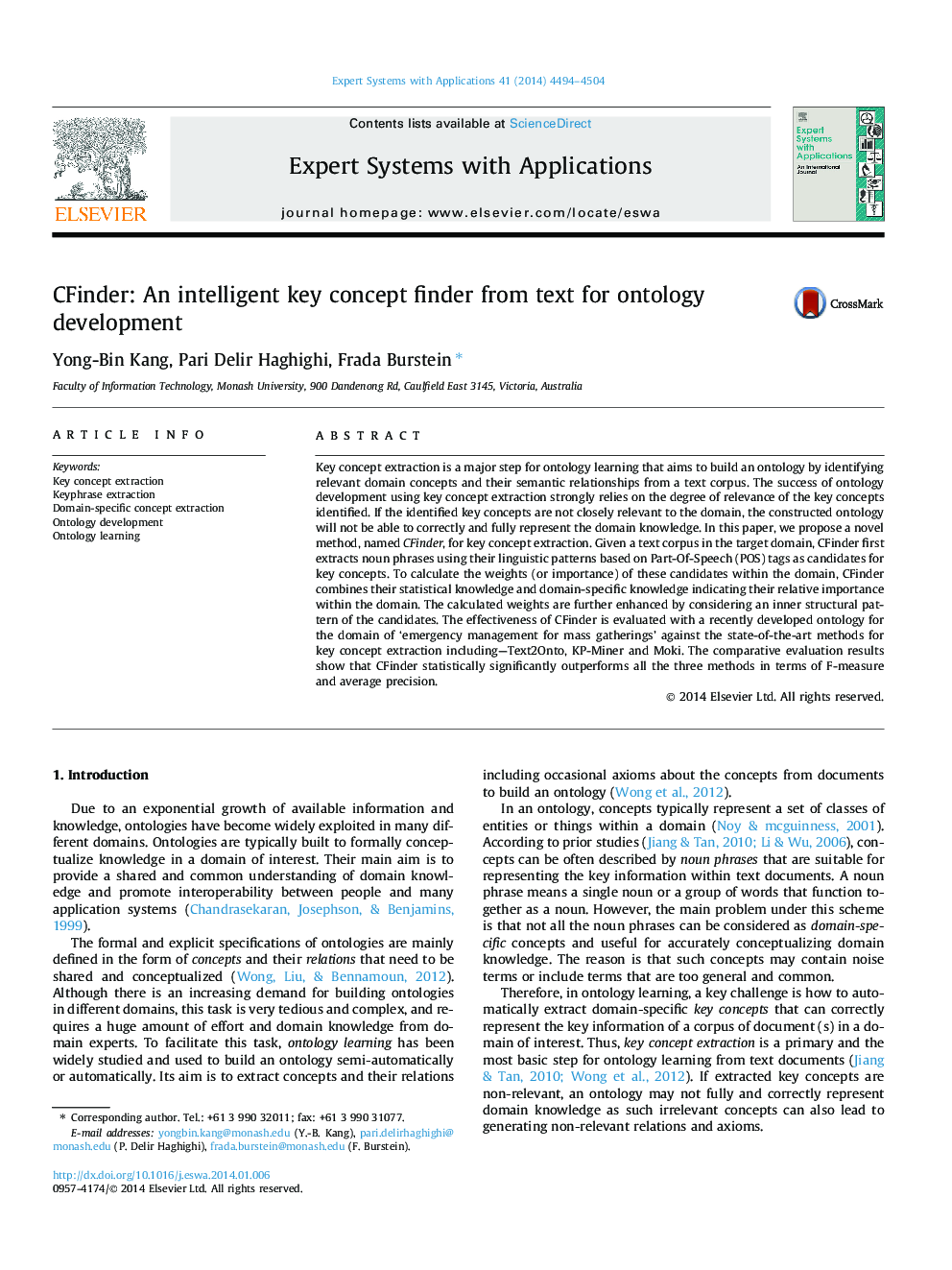| Article ID | Journal | Published Year | Pages | File Type |
|---|---|---|---|---|
| 386604 | Expert Systems with Applications | 2014 | 11 Pages |
•Proposed an unsupervised method named CFinder to improve effectiveness of key domain concept extraction.•Proposed a novel method for weighting key concepts using a combination of NLP techniques and various knowledge sources.•Evaluation of CFinder against three state-of-the-art key concept extractors demonstrated its higher performance.
Key concept extraction is a major step for ontology learning that aims to build an ontology by identifying relevant domain concepts and their semantic relationships from a text corpus. The success of ontology development using key concept extraction strongly relies on the degree of relevance of the key concepts identified. If the identified key concepts are not closely relevant to the domain, the constructed ontology will not be able to correctly and fully represent the domain knowledge. In this paper, we propose a novel method, named CFinder, for key concept extraction. Given a text corpus in the target domain, CFinder first extracts noun phrases using their linguistic patterns based on Part-Of-Speech (POS) tags as candidates for key concepts. To calculate the weights (or importance) of these candidates within the domain, CFinder combines their statistical knowledge and domain-specific knowledge indicating their relative importance within the domain. The calculated weights are further enhanced by considering an inner structural pattern of the candidates. The effectiveness of CFinder is evaluated with a recently developed ontology for the domain of ‘emergency management for mass gatherings’ against the state-of-the-art methods for key concept extraction including—Text2Onto, KP-Miner and Moki. The comparative evaluation results show that CFinder statistically significantly outperforms all the three methods in terms of F-measure and average precision.
